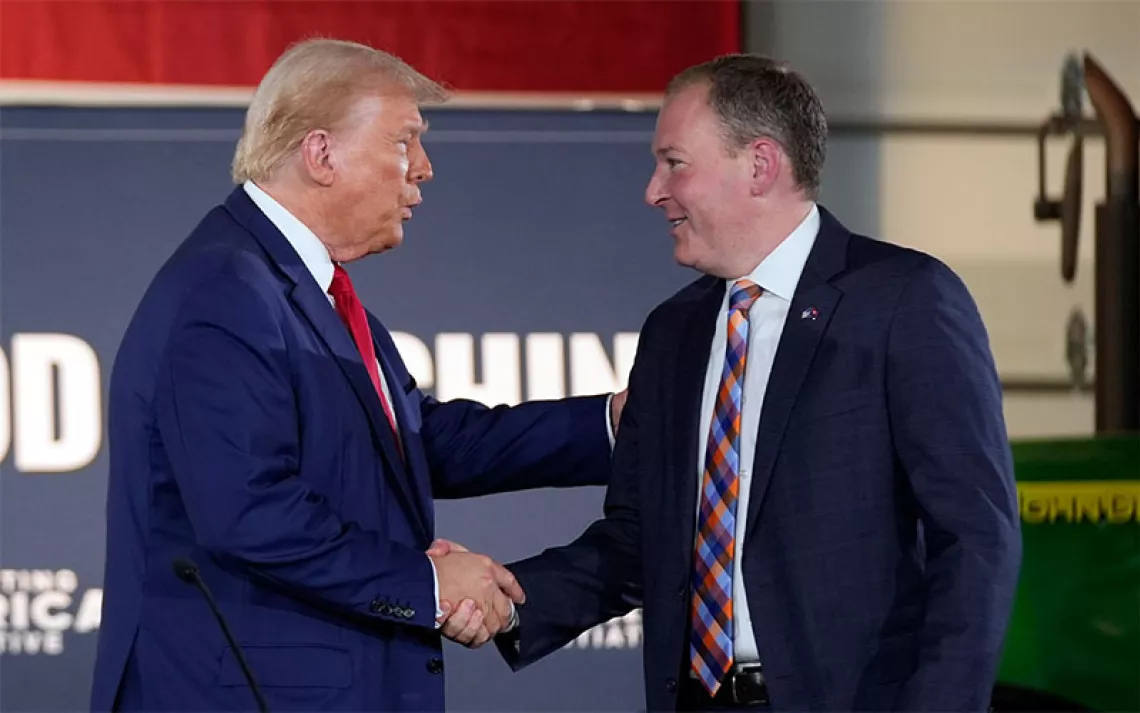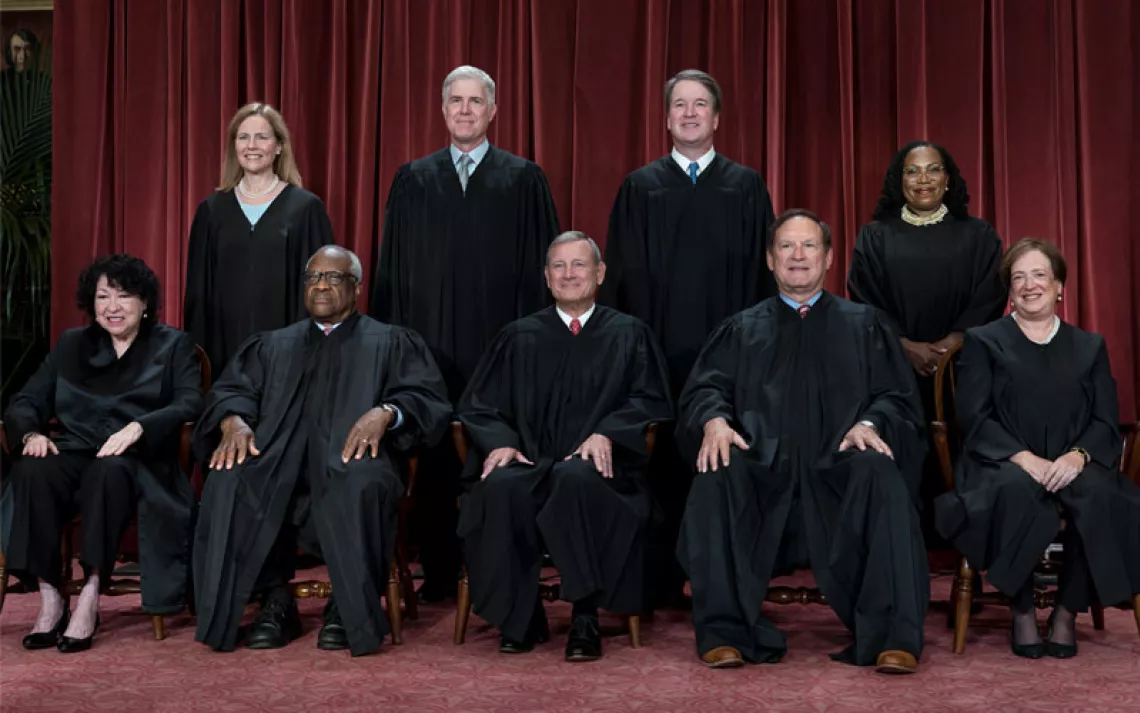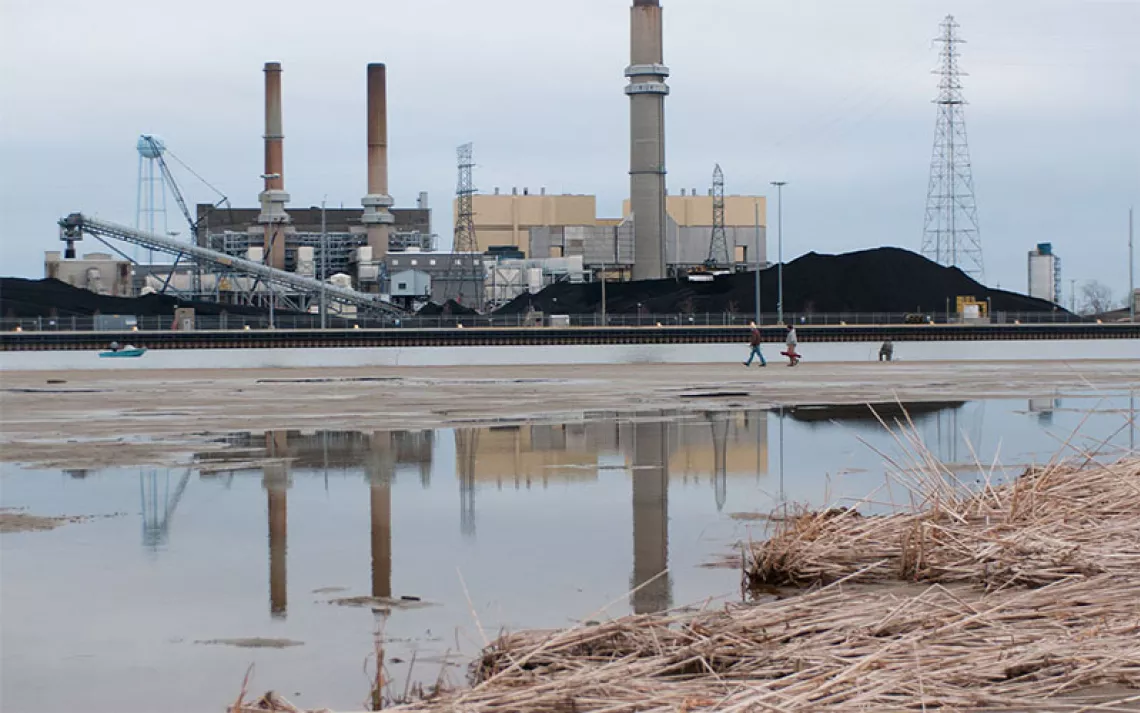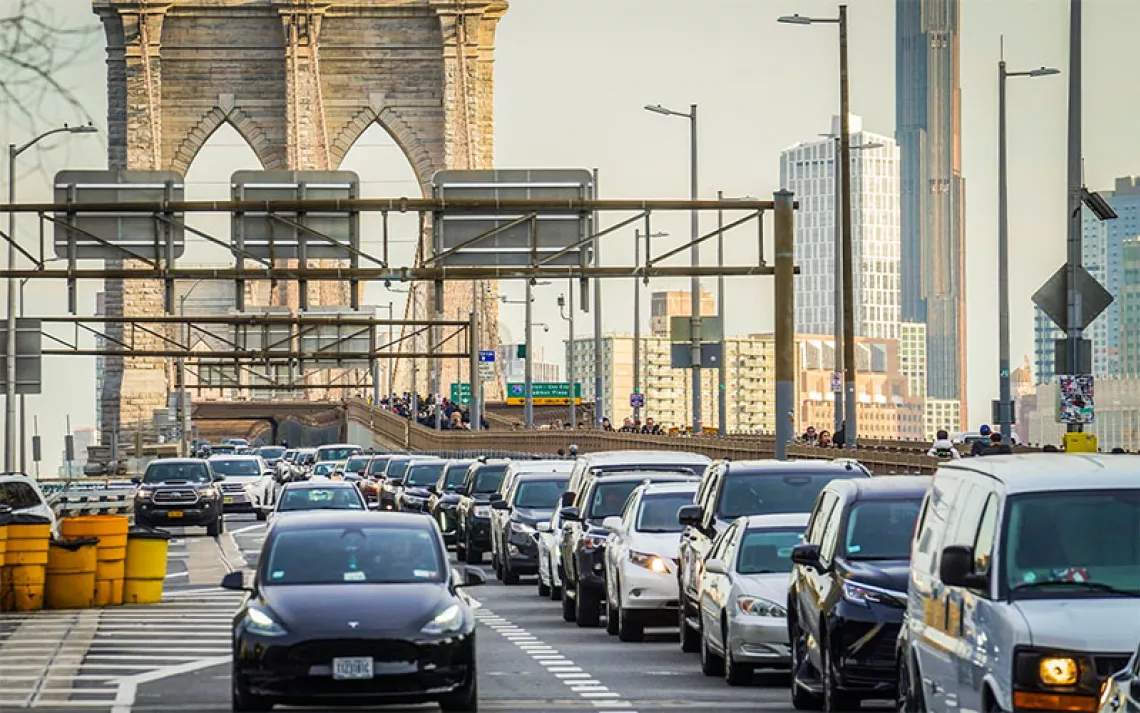Scott Pruitt Mulls Attack on California Clean Car Rules
EPA chief supports states’ rights—except when it comes to environmental protection

Photo by MasaoTaira/iStock
Environmental groups and legal scholars were in agreement that the Trump administration’s plans to attack a bedrock American environmental law were legally dubious and unprecedented. Nothing like it had ever been tried before. Yet in December 2017, the administration went ahead with an effort to dramatically downsize Bears Ears and Grand Staircase-Escalante National Monuments in Utah, an unheard-of move in the 100-plus-year history of the Antiquities Act. The attempted reduction of those two national monuments is now, predictably, hung up on legal challenges that will probably last years and may go all the way to the U.S. Supreme Court.
Now, it’s like deja vu all over again, only this time the stakes are much higher as the Trump administration seeks to flatten one of the Obama administration’s most ambitious efforts to reduce the carbon pollution that is heating up the planet.
Earlier this week, embattled EPA administrator Scott Pruitt suggested that his agency will seek to revoke California’s waiver under the Clean Air Act that allows the state to set tailpipe standards higher than federal rules. Like the attack on the national monuments, Pruitt’s apparent plan to rescind California’s waiver is legally questionable and unprecedented. No EPA administrator has ever sought to revoke an existing waiver, and the Clean Air Act doesn’t even include language about how (or whether) such a thing can be done. Yet Pruitt continues to barrel ahead, evidently driven by a free-market fundamentalism opposed to any kind of government oversight.
On Monday, Pruitt’s EPA announced that it is putting the brakes on a 2012 agreement reached between the federal government, the state of California, and the major automakers to increase the average fuel economy of new cars and trucks to more than 50 miles per gallon by 2025. The rules, the agency said in a statement, are “not appropriate and should be revised.” A day later, Pruitt held a press conference during which he declared that the move was another step in the Trump administration’s “deregulatory agenda.” (Pruitt was able to dodge any tough questions about his decision, as agency staff didn’t invite reporters from CNN, ABC, NBC, and Politico, among many other outlets, to the briefing.)
Environmental groups like the Sierra Club, many Members of Congress, and officials from more than 10 states immediately slammed the planned rollback of higher fuel efficiency rules, which would have saved drivers millions of dollars at the gas pump while also reducing smog and limiting carbon pollution from the United States’s number one source of greenhouse gas emissions. On Wednesday, six U.S. Senators sent a pointed letter to the head of the EPA with a list of questions about how the agency had reached its decision. Attorneys general from 12 states—joined by 45 mayors—then released a declaration saying they will “vigorously resist any effort by the administration to prevent states from enforcing reasonable, commonsense emissions performance standards for vehicle fleets sold in their jurisdictions.” Even carmaker Honda felt that the EPA’s move went too far, with an executive from American Honda Motor complaining that the Pruitt plan is not “sensible.”
The announcement also left many former EPA staffers trying to make sense of how Pruitt plans to defend his new rules, which will be released this spring. “I don’t know what Scott Pruitt has in mind or what Bill Wehrum [the assistant EPA administrator for air and radiation] has in mind—they are using some very aggressive rhetoric,” says Janet McCabe a senior fellow at the Environmental Law and Policy Center who worked at the EPA from 2009 to 2017, and during that time oversaw the writing of the tailpipe rules. “What basis would Pruitt use [for writing new rules]? ‘We’ve changed our minds?’ I’m not sure that would pass in court.”
McCabe pointed out that when she was at the agency, her team prepared a 1,100-page report to support its determination that the higher 2025 fuel standards were technically feasible and economically reasonable. In contrast, the document that the EPA released this week in support of its contrary decision was a scant 38 pages long, and much of it consisted of statements from the automakers complaining about the rules. “The document put out [this week] doesn’t compare to the work that we did,” McCabe says. “Its references to the auto lobbying comments is not what the American people should expect—not from an agency that is tasked with protecting people’s public health and the environment.”
True enough. But such behavior is to be expected from Scott Pruitt, who has a history of cribbing his government homework from industry notes. In 2011, when he was Oklahoma’s attorney general, Pruitt’s office took a memo from oil-and-gas company Devon Energy that complained about federal methane standards, copied it virtually word for word, pasted the attorney general’s letterhead on it, and submitted it to federal officials. Pruitt’s slapdash rollback of the clean car standards, then, is characteristic of his cavalier approach to government rule-making. And his stenography of corporate talking points helps to illustrate what appears to be his true goal: abolishing any public oversight of private enterprise.
When he was the Oklahoma attorney general, Pruitt sued the federal government no less than 14 times over environmental, animal welfare, and public health rules put in place by the Obama administration. Such rules, Pruitt argued then, overstepped federal authority and violated states’ rights. (More often than not, the courts disagreed.) But now that he’s a federal official, Pruitt seems to have come to a different conclusion about the balance of power between the national government and states.
While the proposed rollback of the higher fuel standards are worrisome enough, Pruitt’s office appears to be plotting an even more audacious attack of clean car rules. In the statement released on Monday, the EPA head hinted that he might try to revoke California’s ability to set tailpipe rules that are tougher than the federal ones. “The California waiver is still being reexamined by the EPA under Administrator Pruitt’s leadership,” the news release said, and then went on to offer this quote from the EPA chief: “Cooperative federalism doesn’t mean that one state can dictate standards for the rest of the country. EPA will set a national standard for greenhouse gas emissions that allows auto manufacturers to make cars that people both want and can afford — while still expanding environmental and safety benefits of newer cars. It is in America's best interest to have a national standard, and we look forward to partnering with all states, including California, as we work to finalize that standard.”
What, exactly, is the “California waiver”? Under the Clean Air Act of 1970, California is granted the unique ability to set its own car and truck emissions standards. That’s because as early as the 1950s California was already working to reduce vehicle pollutants in response to Los Angeles’s then notoriously filthy air quality. The Act said that while California couldn’t have lower standards than the federal ones, it could put in place higher standards. The law also gave other states the ability to join the California standards, which many have done. Today, another 12 states, plus the District of Columbia, mandate that cars and trucks sold in their states comply with California tailpipe rules. This policy architecture has worked as intended. “California has been responsible for huge reductions in pollution from cars, so we should be hugely thankful to engineers and policy makers in California,” former EPA staffer McCabe says.
The EPA has granted to California at least 50 waivers since the Clean Air Act went into effect. Over the years, some waiver requests have been denied. But there is no example of an existing waiver being revoked, and legal experts say the law offers no clear mechanism for doing so. California’s current waiver extends through 2025. “California’s special status has been recognized in court decision after court decision after court decision,” says Joanne Spaulding, managing attorney of the Sierra Club’s law program and a specialist in climate change law.
And what about Pruitt’s claim that the California waiver somehow violates the spirit of federalism? It’s simply nonsense. California isn’t dictating anything to the rest of the country; rather, the state is simply exercising its authority under the Clean Air Act to establish its own rules. It’s then up to other states whether to follow along, and up to the automakers to figure out how to comply. This would seem to be the very model of virtuous federalism, what early 20th century Supreme Court Justice Louis Brandeis called the “laboratories of democracy” in which “states may … try novel social and economic experiments without risk to the rest of the country.”
But Pruitt isn’t interested in such experimentation—at least not if it’s going to inconvenience Big Auto. His idea of “cooperative” federalism appears to be a one-way street in which states can drive toward lower environmental and public health standards but cannot head toward higher standards. Pruitt’s says he’s in favor of states’ rights—but evidently only if states want to engage in a race to the bottom.
There’s a word for this: hypocrisy.
 The Magazine of The Sierra Club
The Magazine of The Sierra Club



